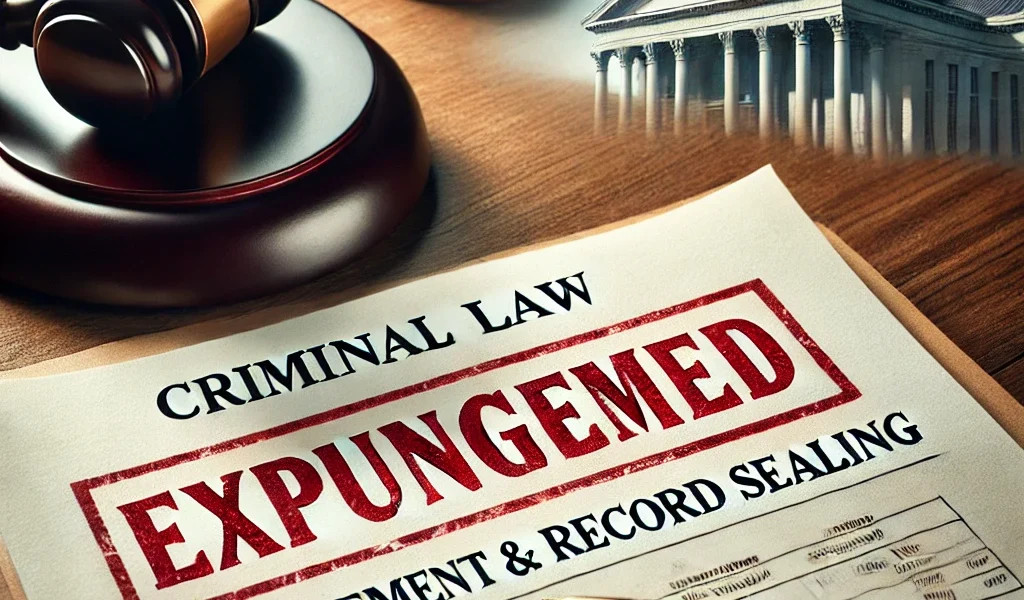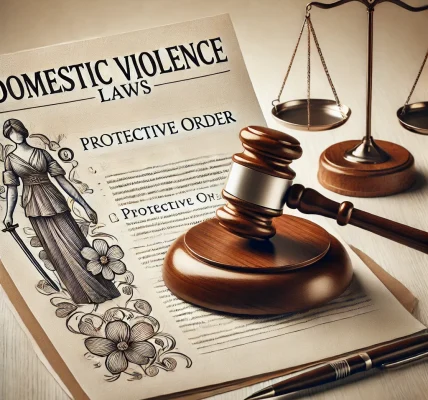Introduction
A criminal record can have long-lasting consequences, affecting employment opportunities, housing applications, and even personal relationships. Fortunately, legal processes such as expungement and record sealing provide individuals with a second chance by removing or restricting access to past criminal records.
Understanding the difference between expungement and record sealing, eligibility criteria, the application process, and the benefits of clearing your record can help you take the necessary steps to move forward with your life.
1. What Is Expungement?
Expungement is the legal process of erasing or destroying a criminal record, making it as if the offense never occurred. When a record is expunged, it is no longer visible to employers, landlords, or the public.
Key Features of Expungement:
- Completely removes the criminal record from public databases.
- In most cases, individuals do not need to disclose the expunged offense.
- Court and law enforcement agencies may still retain the record in some instances.
2. What Is Record Sealing?
Record sealing differs from expungement in that the criminal record is not destroyed but rather hidden from public view. While law enforcement and certain government agencies may still access sealed records, they do not appear in standard background checks.
Key Features of Record Sealing:
- Criminal records remain intact but are restricted from public access.
- Employers and landlords typically cannot see sealed records.
- Courts may unseal records under specific legal circumstances.
3. Expungement vs. Record Sealing: What’s the Difference?
| Feature | Expungement | Record Sealing |
|---|---|---|
| Visibility to Public | Removed Completely | Hidden but Still Exists |
| Background Checks | Does Not Appear | Usually Does Not Appear |
| Access by Law Enforcement | Rarely Accessible | Still Accessible |
| Eligibility Requirements | Often Stricter | More Flexible |
Understanding these distinctions is crucial for choosing the right option based on your criminal history and legal circumstances.
4. Who Is Eligible for Expungement or Record Sealing?
Eligibility requirements vary by jurisdiction, but common factors include:
a) Type of Offense
- Expungement: Typically available for non-violent offenses, misdemeanors, juvenile offenses, and cases dismissed or acquitted.
- Record Sealing: Often includes minor felonies, certain drug offenses, and completed diversion programs.
b) Completion of Sentence
- The applicant must have served their full sentence, including probation and any court-ordered programs.
- Payment of all fines and restitution is usually required.
c) Waiting Period
- Many jurisdictions require a waiting period before applying (e.g., 1-10 years depending on the offense).
d) No Additional Offenses
- Individuals with repeat offenses or pending charges may not be eligible.
5. How to Apply for Expungement or Record Sealing
The process varies by state or country, but general steps include:
Step 1: Obtain Your Criminal Record
- Request a copy from local law enforcement or court records.
Step 2: Review Eligibility Requirements
- Consult an attorney or check state laws to confirm eligibility.
Step 3: File a Petition with the Court
- Submit an expungement or sealing petition to the appropriate court.
- Include supporting documents, such as proof of rehabilitation or completion of probation.
Step 4: Attend a Court Hearing (If Required)
- Some cases require a hearing before a judge to justify the request.
Step 5: Receive Court Decision
- If approved, the record will be expunged or sealed.
- If denied, applicants may reapply after a specified period.
6. Benefits of Expungement and Record Sealing
Clearing a criminal record provides multiple advantages, including:
a) Better Employment Opportunities
- Employers conducting background checks will no longer see expunged or sealed records.
b) Improved Housing Applications
- Landlords often reject applicants with criminal records; sealing or expungement removes this barrier.
c) Restoration of Civil Rights
- Some expungements restore voting rights, firearm rights, and eligibility for professional licenses.
d) Greater Peace of Mind
- Individuals can move forward without the stigma of a criminal past.
7. Potential Limitations of Expungement and Record Sealing
Despite the benefits, there are some limitations:
a) Certain Crimes Are Ineligible
- Violent felonies, sexual offenses, and repeat offenses may not qualify.
b) Federal Background Checks May Still Show the Record
- Some federal agencies may access sealed records, especially for government jobs or security clearances.
c) Immigration Consequences
- Expungement does not automatically erase convictions for immigration purposes.
8. Frequently Asked Questions
Q1: Can I Apply for Expungement on My Own?
Yes, but hiring an attorney increases the chances of approval.
Q2: How Long Does the Expungement Process Take?
It varies by jurisdiction but typically takes 3-12 months.
Q3: Can a Denied Expungement Application Be Refiled?
Yes, though applicants may need to wait before reapplying.
Q4: Does Expungement Remove Arrest Records?
Yes, in most cases, but some government agencies may retain access.
9. Conclusion
Expungement and record sealing provide individuals with an opportunity to overcome the obstacles created by a criminal record. Understanding eligibility requirements, the legal process, and the benefits can help individuals take the necessary steps to secure a fresh start.




